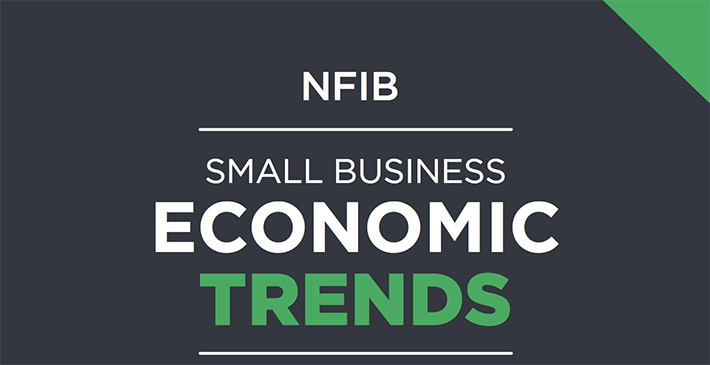Lendio Achieves SOC 2 Compliance
July 12, 2022 Lendio recently achieved SOC 2 compliance. Short for Service Organization Control 2 and pronounced “sock two,” the voluntary designation for Lendio, which focuses on data security, is not commonly sought by its peers.
Lendio recently achieved SOC 2 compliance. Short for Service Organization Control 2 and pronounced “sock two,” the voluntary designation for Lendio, which focuses on data security, is not commonly sought by its peers.
SOC 2 is defined by American Institute of Certified Public Accountants (AICPA) guidelines and issued by outside auditors. The AICPA itself is an association that provides educational guidance materials, develops and grades the Uniform CPA Examination, and monitors and enforces compliance within the profession.
“We focus on small and medium sized business owners and their businesses,” said Ethan Hanson, SVP, General Counsel at Lendio, “and they benefit because they know they’re dealing with a company that is secure and takes their information seriously and handles that information with care.”
The process in obtaining this certification takes months of preparation and covers data security, data privacy, HR and accounting functions, making this an all-encompassing certification.
“The process is you engage with an audit party, they come in, and they review all of your policies, all of your systems, how our database is set up and the framework that you have and ensure that all those policies cover our business operations, and that they are also in line with the standards of the AICPA,” said Hanson.
Have You Heard of Jeeves?
July 6, 2022 Founded in 2020, the expense management platform Jeeves, recently won the Small-Medium Sized Business Lender Award from the Canadian Lenders’ Association. Jeeves is a Y-combinator company providing financial services internationally, and with their recent success the company has been able to operate in 24 countries.
Founded in 2020, the expense management platform Jeeves, recently won the Small-Medium Sized Business Lender Award from the Canadian Lenders’ Association. Jeeves is a Y-combinator company providing financial services internationally, and with their recent success the company has been able to operate in 24 countries.
“I think the number one thing that all of us at Jeeves would agree on is that we intently listen to our clients, we understand that we try to understand the pain points and therefore try to match those pain points or client demands to work with our skill sets,” said William Lam, Jeeves General Manager of North America.
Lam oversees the market activities for the US and Canada. An expense management platform, which the company labels its product as, is essentially a platform used to track expenses. Compared to platforms like QuickBooks, Jeeves integrates with the software rather than competes against it.
“We focus on providing financial services, not accounting software, for international startups and fast-growing companies. We are excited to continue to enhance the Jeeves platform and integrate with more accounting software in the near future,” said Lam.
According to the Dictionary, the term Jeeves is defined as a butler or valet which resonates with the behavior that the company tries to model.
“We want to remind ourselves, that we need to be providing the type of services and products that our clients need, and nothing beats a happy client. And therefore, we came up with that name, Jeeves, and that’s the mode of writing that our CEO and founder has been living on a daily basis with the rest of his team,” said Lam.
During Covid many businesses suffered tremendously in Canada, but for Jeeves it helped the company to grow and expand.
“For us as a company, as a FinTech company, that aspires to provide financial services globally, I think the pandemic fueled growth, and we’re experiencing like 900% growth since our Series B,” he said.
For loans, Jeeves focuses on corporate card solutions which upon approval allows clients to get funds in 48 hours and can be paid back in 12 monthly payments.
“So specifically, we launched our growth capital products as of just last month in June. Growth capital is a non-diluted revenue-based financing that’s very suitable for a lot of SaaS businesses specifically, and the clients are able to get the loans,” said Lam.
Lam believes there is still a lot of work to be done to complete the vision of becoming a global finance company with hopes of launching in more countries, more products, and more news to share.
“We service a lot of the small businesses as far as like unicorns, or unicorn startups, we’re very proud of the achievement so far. But I think that this is just the beginning,” he said.
Small Business Finance Industry Ponders Inflation, Changing Economic Conditions Ahead
July 1, 2022 “I think what’s really important is just the same for our businesses and any business, is being able to make sure that as things change, you’re updating and changing what you’re doing,” said Seth Broman, Chief Revenue Officer at Yardline.
“I think what’s really important is just the same for our businesses and any business, is being able to make sure that as things change, you’re updating and changing what you’re doing,” said Seth Broman, Chief Revenue Officer at Yardline.
With the constant changes in the economy, inflation being on the rise, and a rumored recession, businesses providing financing are analyzing whether or not their customers will be able to withstand challenging times ahead.
“For us a big factor is the increased costs of being able to source goods from overseas, for example, the challenges around getting those goods in a timely fashion,” said Broman. “That’s the first thing we saw. And then similarly, in the e-commerce space, you’re seeing brands that aren’t able to sell at the same level as they were beforehand.”
Like Broman, John Celifarco, a Managing Partner at Horizon Funding Group, acknowledges that inflation is directly affecting his customers.
“It’s definitely going to have an effect on the industry as a whole in terms of our clients, I’d say it’s going to affect certain ones more than others, depending upon how their business is structured, and what type of relationship they have with their customers,” said Celifarco.
And with recent concerns for a recession, Celifarco believes this won’t affect a client’s willingness to borrow but rather the ability to get them approved.
“Having seen this in the past, there have been times where the economy has slowed or there’s been a recession, and the customers still want money, but because of the trouble the businesses are having it’s a lot harder to get people approved on the lending side,” said Celifarco.
Not being able to access credit for customers is also an area of concern for Luis Hernandez, CEO of CapLadder.
“There are going to be more cash constraints in a recession. Obviously, funding companies won’t want to take on certain risks so they’ll obviously be more careful on how they disperse those funds just to make sure they’re getting paid back,” said Hernandez.
Hernandez suggests companies should limit hiring and expenses to better weather the storm.
“With the recession looming, and pretty much it is going in this direction, the best practices right now are what’s always been tried, which is, hold on to your reserves. Cash is definitely better in your pocket than out there,” he said.
Eight Charged in PPP Scheme in California
June 24, 2022 Another alleged SBA fraud scheme has met its end after eight defendants were recently charged in the Eastern District of Pennsylvania. The group netted $7 million in Paycheck Protection Program loans, Economic Injury Disaster Loans, and pre-pandemic Small Business Administration loans. Defendants Frank Hamilton, Michael Jones, Tina Chen, Kenny Tran, Tim Park, Peter An, Joseph Greco, and Edwin Bonilla are all California residents.
Another alleged SBA fraud scheme has met its end after eight defendants were recently charged in the Eastern District of Pennsylvania. The group netted $7 million in Paycheck Protection Program loans, Economic Injury Disaster Loans, and pre-pandemic Small Business Administration loans. Defendants Frank Hamilton, Michael Jones, Tina Chen, Kenny Tran, Tim Park, Peter An, Joseph Greco, and Edwin Bonilla are all California residents.
Specifically for PPP loans, the conspirators allegedly created transactions designed to give the appearance that the funds were being used for payroll. However, the companies had no payroll and no business activities. As part of the scheme, they allegedly created fake bank statements and false tax documents to prove legitimacy. The defendants are being charged with conspiracy to commit wire fraud and face up to 20 years in prison if convicted.
Should financial literacy be a requirement in school curriculums?
June 24, 2022 Michigan recently became the 14th state in the U.S. to mandate high schoolers to take a half-credit finance education course before graduating. This mandate was put into effect by the HB 5190 bill signed by Gov. Gretchen Whitmer just last week.
Michigan recently became the 14th state in the U.S. to mandate high schoolers to take a half-credit finance education course before graduating. This mandate was put into effect by the HB 5190 bill signed by Gov. Gretchen Whitmer just last week.
“As a mom, I want every kid who graduates in Michigan to enter the world with a diverse set of skills and knowledge, and that must include financial literacy,” said Whitmer.
Along with Michigan; Alabama, Florida, Georgia, Iowa, Mississippi, Missouri, Nebraska, North Carolina, Ohio, Rhode Island, Tennessee, Utah and Virginia all require high school students to take personal finance courses.
According to a survey conducted by Next Gen Personal Finance, 22.7% of US high school students will have guaranteed access to a personal finance course. An additional 48.2% of students in 2022 have access to one either as an elective or as a possible option to fulfill a graduation requirement. Only 4.87% have no access to any financial education in any of their courses.
In non-guaranty states, personal finance courses were least likely to be available in city areas with only 1 in 20 receiving personal financial education. In rural areas, that figure increased to 1 in 7. The numbers also fluctuate based upon the schism in location, race, and socioeconomic status.
The importance of financial education early on can’t be overstated as the benefits of it seem to wane into adulthood, almost to zero.
According to Mariel Beasley, principal at the Center for Advanced Hindsight at Duke University and Co-Director of the Common Cents Lab (CCL), “Content-based financial education classes [for adults] only accounted for .1 percent variation in financial behavior.” She added, “We like to joke that it’s not zero but it’s very, very close.”
The Single Most Important Problem that Small Business Owners are Facing
June 16, 2022 Inflation is now ranked as the single most important problem that business owners face. According to a survey conducted by the NFIB last month, 28% of respondents ranked inflation as the biggest problem, beating out nine other categories including poor sales, cost of labor, and taxes.
Inflation is now ranked as the single most important problem that business owners face. According to a survey conducted by the NFIB last month, 28% of respondents ranked inflation as the biggest problem, beating out nine other categories including poor sales, cost of labor, and taxes.
A year ago, only 8% of respondents cited inflation as the most important problem. Small business owners have been forced to raise prices because the supply of their own goods have increased to an all time high. The increase in prices has been more prominently felt in wholesale, manufacturing, retail trades, and construction.
Close behind inflation, 23% of business owners complained that the quality of labor available was actually the most important problem. That was only down 3% from where it was a year ago. Along with all the other problems business owners must deal with, they are now worrying about the quality of their products not being produced at their best. Sixty-one percent of owners reported few or no qualified applicants for the positions they were trying to fill which seems to be why labor quality is currently a point at issue. Thirty-three percent of owners reported few qualified applicants for current open positions and 28 percent reported none.
The least important problem that business owners seemed to be worried about is finance & interest rates, which was listed at 1%. Last year the percentage of that being an important problem was the same at 1%.
Apple Pay Later?
June 15, 2022 Apple is joining BNPL stalwarts Afterpay and Klarna with its own product called Apple Pay Later. Joining the Apple suite of finance products such as Apple Card, Apple Cash, and Apple Wallet, it is planned to launch in the fall of 2022 as a new feature in iOS 16. Apple will offer customers the ability to split their payments into four over a six-week period with no added interest or late fees. These payments can be deducted automatically or customers can choose to opt out and make the payments manually.
Apple is joining BNPL stalwarts Afterpay and Klarna with its own product called Apple Pay Later. Joining the Apple suite of finance products such as Apple Card, Apple Cash, and Apple Wallet, it is planned to launch in the fall of 2022 as a new feature in iOS 16. Apple will offer customers the ability to split their payments into four over a six-week period with no added interest or late fees. These payments can be deducted automatically or customers can choose to opt out and make the payments manually.
Customers will be able to link their debit cards to Apple Pay Later when making transactions but will only be able to borrow $1,000 at max. And the limit one gets depends on their Apple credit history. The new loan service will use Apple IDs to check payment history before purchases to prevent fraud and track one’s account information to determine if they’re eligible. Missing a few Apple Music payments might make an approval less likely. for example.
Buy Now Pay Later is becoming extremely popular. According to thefinancialbrand.com, BNPL is expected to skyrocket from 1.6 million users in 2018 to 59.3 million users in 2022 with the leading users being Millennials and Gen Z. Apple is entering the market with a competitive advantage since many retailers already offer Apple Pay.































